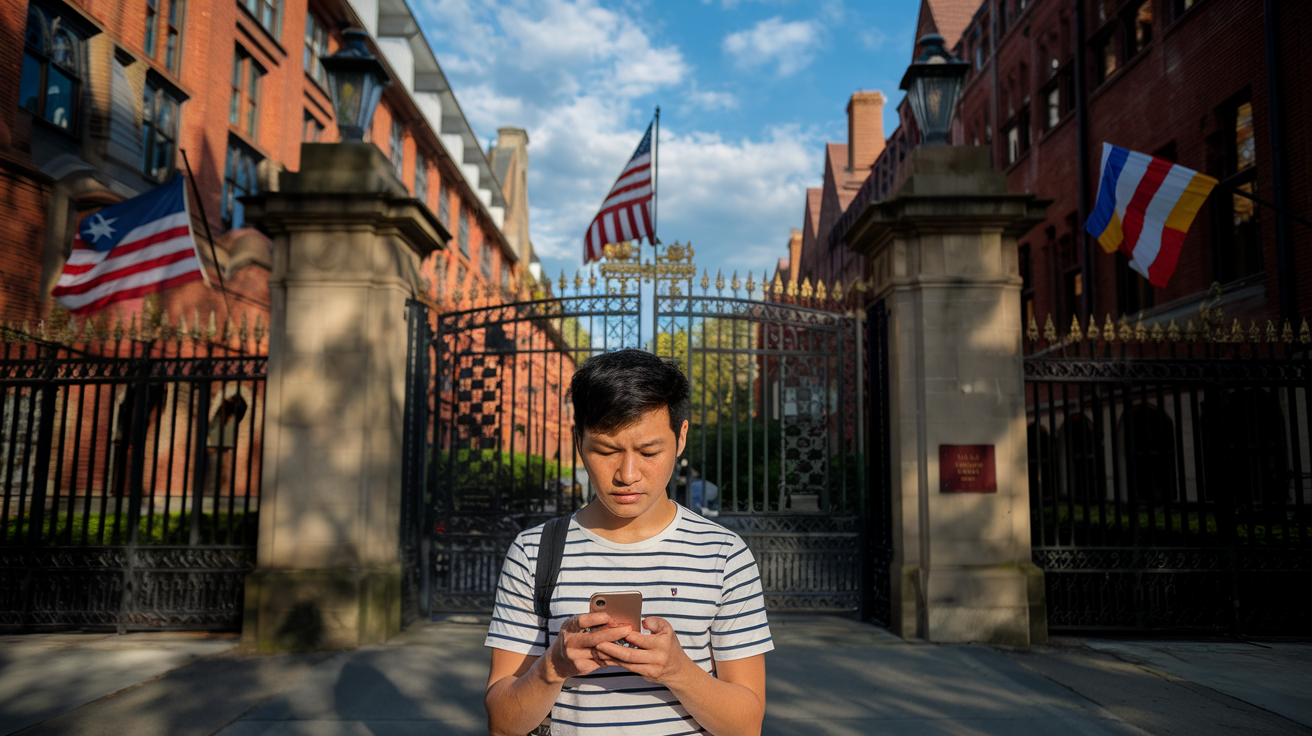Harvard's International Student Dilemma: What You Need to Know
In a shocking development that has sent ripples through the academic world, the Trump administration has suspended Harvard University's ability to enroll international students. If you're following higher education news, this decision affects not just one of America's most prestigious institutions, but potentially signals a dramatic shift in how the U.S. approaches international education. Current international students at Harvard—some 6,800 individuals representing 27% of the student body—now face the stark choice of transferring to another institution or potentially losing their legal status.
The stakes couldn't be higher as this unprecedented move comes amid accusations of "anti-Americanism" and allegations regarding Harvard's compliance with federal reporting requirements. As you try to make sense of these developments, you might wonder: What does this mean for international students across America? How will this reshape global higher education? In the following sections, we'll break down the government's justifications, Harvard's response, and most importantly, what this means for you and the future of international education in the United States.
The Trump Administration's Action Against Harvard
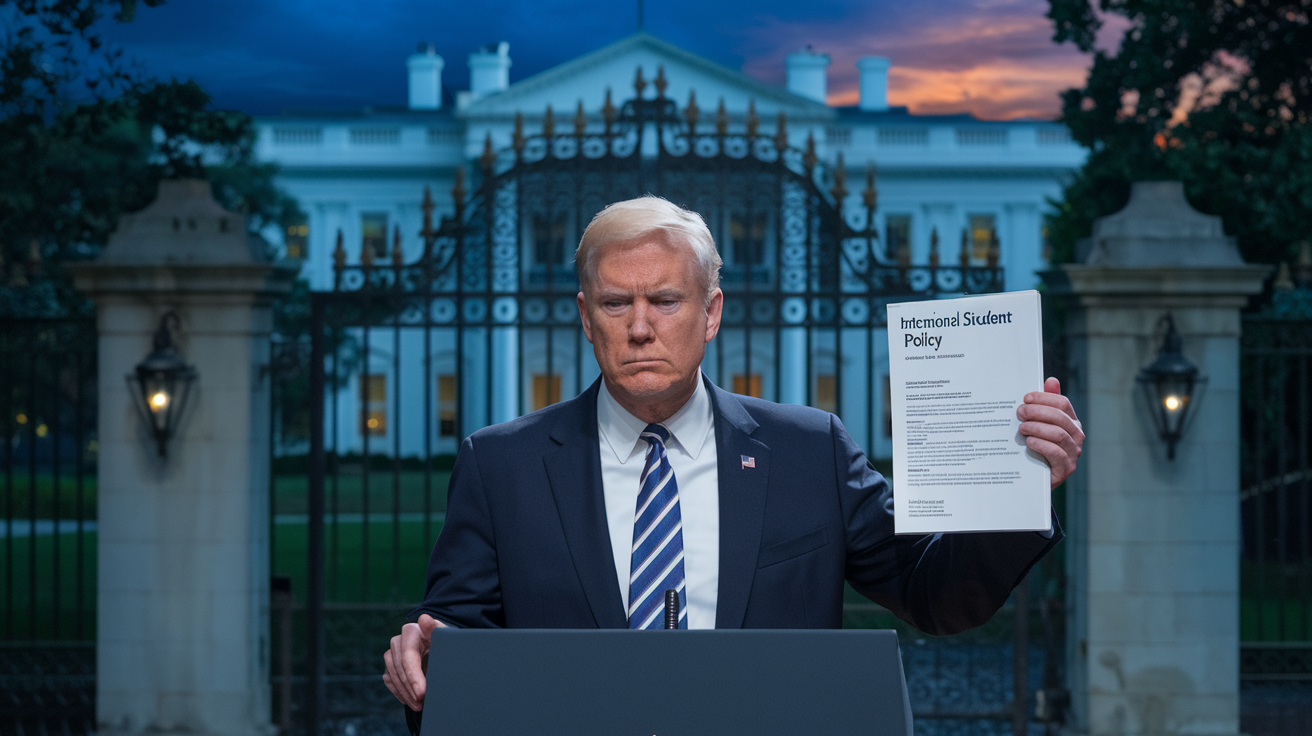
The Trump Administration's Action Against Harvard
A. Suspension of international student enrollment
The Trump administration has revoked Harvard University's ability to enroll international students for the 2025-26 academic year, following what they claim is non-compliance with reporting requirements. This unprecedented action affects thousands of international students who make up 27% of Harvard's student body.
B. Order for current students to transfer
Current foreign students now face the difficult choice of transferring to other institutions or potentially leaving the country. This directive has created significant confusion and anxiety, especially as it was announced just days before graduation for many students.
C. Revocation of Student and Exchange Visitor Program certification
Harvard's certification under the Student and Exchange Visitor Program has been suspended, with the administration stating the university can only regain its status by submitting extensive records of foreign student activities within a 72-hour window. This represents a shift from administrative oversight to enforcement in tracking international students.
Now that we understand the actions taken against Harvard, let's examine the government's stated justifications for these severe measures and how officials have framed their decision.
Government's Stated Justifications
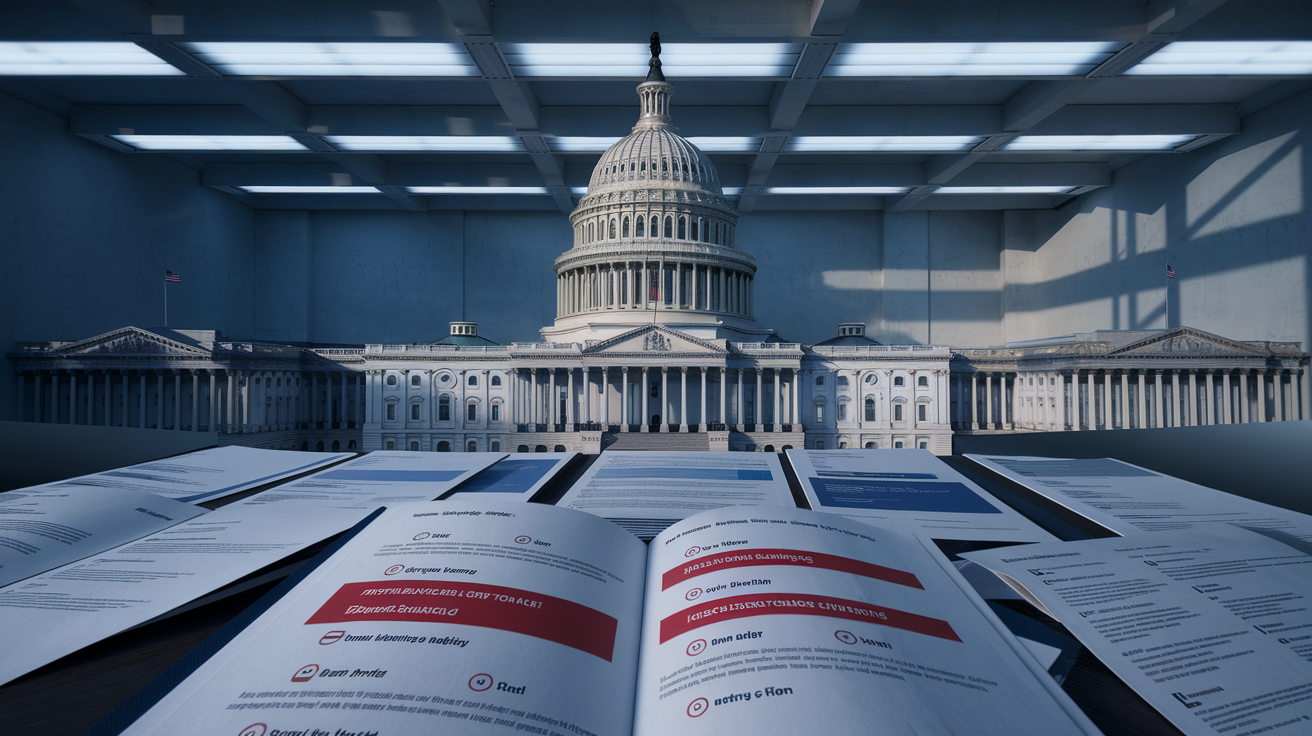
Government's Stated Justifications
Now that we've examined the Trump administration's actions against Harvard, let's look at their official reasoning. The government has justified the suspension of Harvard's SEVP certification through several claims. The administration demanded detailed records of disciplinary actions involving international students over the past five years, with potential criminal repercussions for non-compliance. Additionally, allegations of antisemitism and anti-Israel sentiment on campus have been cited, following protests and investigations at the university. The administration has also raised concerns about connections to the Chinese Communist Party among Harvard's international community, which makes up 27% of the student body. With these justifications in mind, let's examine Harvard's response to these serious allegations.
A. Alleged non-compliance with federal records requests
You should understand that a key justification behind the Trump administration's actions is Harvard's alleged refusal to comply with federal records requests. The government demanded detailed documentation of any disciplinary actions involving international students over the past five years. This request came after Harvard had already faced the freezing of $2.2 billion in federal funding for similar compliance issues. The administration has positioned this as a matter of national security and proper oversight, suggesting that Harvard's resistance indicates they have something to hide about their international student population.
B. Claims of anti-Americanism and antisemitism
You might be concerned about how campus climate factors into this situation. The administration has pointed to protests at Harvard and investigations into allegations of antisemitism and anti-Israel sentiment as justification for their actions. These claims connect to broader criticisms from the administration that Harvard has fostered an environment hostile to American values and Jewish students. The University has been under scrutiny for its handling of these issues, with the government suggesting that international students may be contributing to or participating in activities deemed problematic by federal authorities.
C. Accusations regarding Chinese Communist Party connections
You should be aware that the administration has specifically highlighted concerns about potential connections between Harvard's international community and the Chinese Communist Party. With international students constituting approximately 27% of Harvard's student body (6,793 students in the 2024-2025 academic year), the government has suggested that this presents a national security risk. These accusations follow a pattern of increased scrutiny of Chinese academic connections across U.S. higher education institutions, with Harvard being positioned as a particular focus due to its prominence and large international enrollment. The administration appears to be using these concerns to justify the extraordinary step of revoking Harvard's ability to enroll new international students.
Harvard's Response to the Suspension

Harvard's Response to the Suspension
Legal challenges to the DHS decision
Now that we've examined the government's justifications, let's look at Harvard's response. The university has immediately begun exploring legal options to challenge the Department of Homeland Security's decision to terminate their SEVP certification. Harvard's legal team is preparing to contest what they view as an unprecedented and potentially unlawful suspension of their ability to enroll international students.
University's commitment to supporting international students
Harvard has emphasized its unwavering commitment to its international community, which constitutes 27.3% of its student body—approximately 6,793 students in the 2024-2025 academic year. The university has established support services to help affected students understand their options, whether transferring to other institutions or seeking alternative visa arrangements to maintain their legal status in the United States.
President Garber's stance on academic autonomy
President Alan Garber has publicly defended Harvard's academic independence while acknowledging the need to address campus concerns. He has reiterated Harvard's compliance with legal requirements while maintaining that government intervention in university affairs threatens institutional autonomy. Garber has pledged to balance addressing legitimate concerns about campus climate with protecting Harvard's educational mission and international character.
With these responses in mind, next we'll examine why this suspension matters beyond Harvard's campus gates and what implications it holds for higher education nationally.
Why This Matters
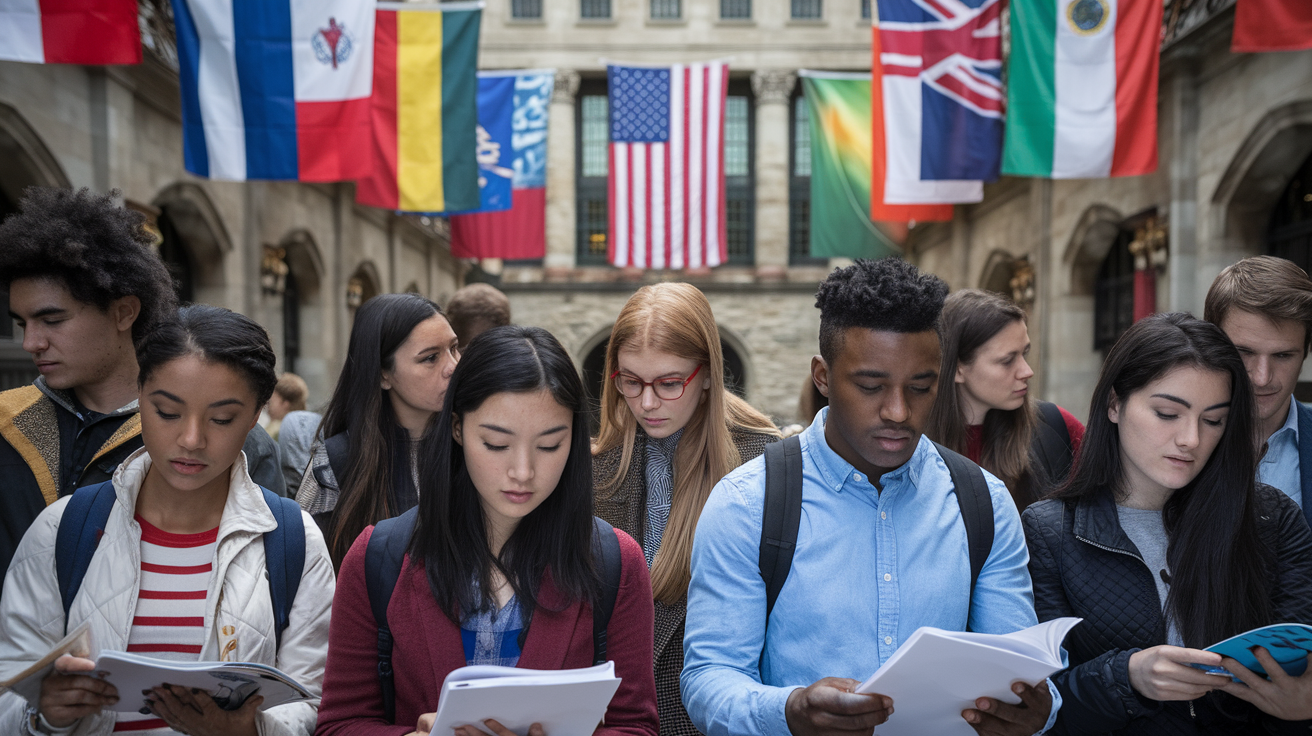
A. Explain how high-profile university controversies affect perceptions of safety, inclusivity, and stability.
When you see Harvard making headlines for visa issues, you're not just watching news—you're witnessing potential red flags about your educational future. These controversies shake your confidence in American institutions, making you question: "Will I feel welcome?" "Is my status secure?" Your perceptions of safety and stability directly impact where you choose to invest your educational dreams.
B. Emphasize how these events make the decision to study in a single country (e.g., the U.S.) more complex for students and families.
You're no longer just choosing a university—you're navigating a minefield of political uncertainties. What happens if policies change mid-degree? What if your visa status becomes a bargaining chip? Your family's concerns multiply beyond academics and finances to include geopolitical stability. Many of you are now considering multi-country education paths rather than putting all your hopes in America's basket.
Impact on Harvard's International Community
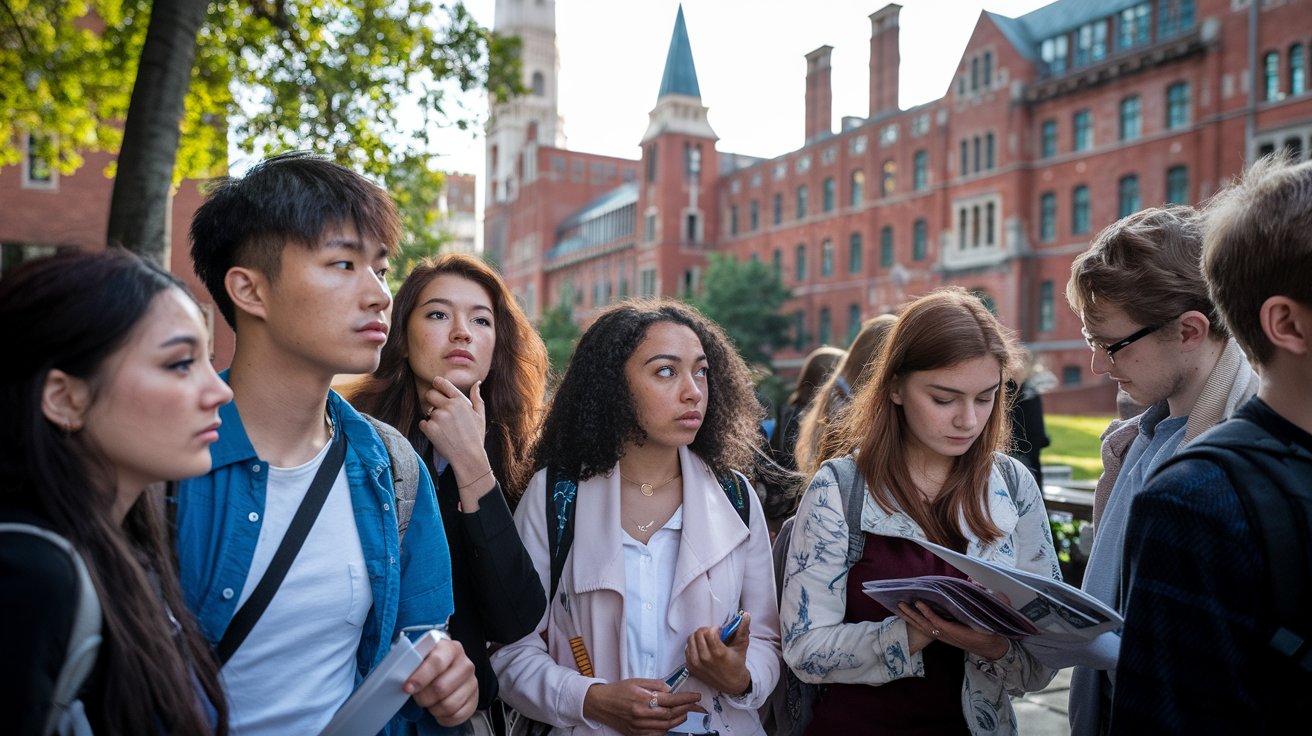
Impact on Harvard's International Community
Statistics on affected international student population
Now that we've seen why this matter affects us all, let's examine the direct impact on Harvard's community. The Trump administration's decision affects approximately 9,970 international community members—representing 27% of Harvard's student body. Specifically, 6,793 international students enrolled for 2024-2025 now face uncertain futures. These students, primarily from China, Canada, and India, contribute significantly to Harvard's finances with potential annual revenues exceeding $591 million from tuition and fees.
Faculty concerns about academic diversity
Harvard faculty and staff have expressed serious concerns about this situation's detrimental impact on the university's academic environment. Many fear that losing international students will significantly undermine Harvard's research capabilities and academic excellence. The diverse perspectives these students bring are considered essential to maintaining Harvard's world-class educational standards and global leadership position.
International students' reactions and calls for action
Student leaders have expressed profound sadness over the treatment of international students, with many organizing support networks and advocacy groups. The situation has drawn international attention, with representatives like Australia's ambassador to the U.S. offering support to affected students. Many international students face difficult choices: transfer to another institution to maintain their nonimmigrant status or potentially leave the country altogether. This uncertainty has sparked calls for legal challenges, with experts suggesting the administration's actions may have overlooked established procedures for revoking SEVP certification.
With this impact on Harvard's international community in mind, we'll next explore the broader implications this decision has for U.S. higher education as a whole.
Broader Implications for U.S. Higher Education

Broader Implications for U.S. Higher Education
Potential shift in global student recruitment patterns
Now that we've seen how Harvard's international community faces immediate challenges, it's important to understand the wider impact. The Trump administration's actions against Harvard could trigger significant shifts in where international students choose to study. With approximately 27% of Harvard's student body being international, this suspension threatens America's standing as a premier education destination. You might see talented students increasingly looking beyond U.S. borders for their education.
Competitive advantage for non-U.S. institutions
You should recognize that institutions in countries with more welcoming immigration policies could gain a substantial competitive edge. As Harvard and potentially other U.S. universities face restrictions on international enrollment, global competitors can position themselves as more stable alternatives. This shift could diminish America's traditional academic dominance and cultural influence, as you'll find more world-class talent concentrated outside U.S. borders.
Federal funding cuts and policy mandates facing Harvard
Beyond visa issues, you need to understand that Harvard is confronting significant financial pressures. The administration has already frozen $2.2 billion in federal funding after the university refused to comply with demands regarding its international student program. Despite Harvard's substantial $53.2 billion endowment, accessing these funds is complicated by legal restrictions. You'll find these financial challenges compounding the difficulty of maintaining Harvard's global academic standing.
With these developments reshaping American higher education, next we'll examine how these changes connect to broader global trends and shifts in international education.
Global Trends and Widespread Shifts

Global Trends and Widespread Shifts
A. Global Policy Shifts
You're witnessing similar challenges worldwide, not just at Harvard. Countries like Canada, UK, and Australia are revamping visa policies while navigating political tensions. When you look at international education today, you'll notice these hurdles aren't isolated to American institutions—they're part of a broader global recalibration affecting students everywhere.
B. Mandated Policy Changes on Diversity and Protests
Universities across the globe are facing pressure to implement new diversity guidelines and protest regulations. You'll find campuses struggling to balance free expression with institutional stability. These mandated changes directly impact your experience as an international student, creating both opportunities and challenges in campus life.
C. Potential Shift in Global Academic Competition
You might soon see a reshuffling of the global education hierarchy. As traditional powerhouses like the US face enrollment challenges, countries like Canada and Germany are stepping up their recruitment efforts. Your options as an international student are expanding, potentially altering where tomorrow's top talent chooses to study.
How We Can Help

How We Can Help
Brief mention of how Globestar Edutech can support students
At Globestar Edutech, we're ready to stand by you through this challenging time. You'll receive expert guidance on career paths, finding the right country and university that welcomes your talents, and crafting application strategies tailored to your unique situation. Remember, you're not alone in this journey—thousands of students face similar challenges, and we've helped them navigate these waters successfully.

Harvard's international student dilemma represents more than just an institutional challenge—it's a pivotal moment for American higher education. As we've explored, the Trump administration's actions against Harvard reflect broader tensions between government oversight and academic freedom, with significant implications for thousands of international students caught in the middle. Whether you're directly affected or concerned about the future of global education, understanding these developments is crucial.
As this situation continues to unfold, remember that resources are available to help navigate these uncertain times. If you're an international student affected by these policies, seek guidance from your university's international student office, legal advisors, or advocacy organizations dedicated to supporting academic freedom. The landscape of international education may be shifting, but by staying informed and engaged, you can better position yourself to respond to these challenges while continuing to pursue your educational goals.

